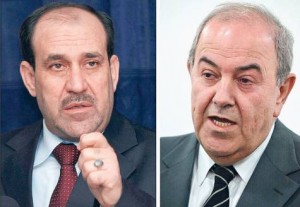
IN THE three weeks since Iraq held elections, many news stories have focused on the negative or the uncertain — on the gains made by followers of radical Shiite cleric Moqtada al-Sadr, for example, and on how long it will take for a ruling coalition to take shape. None of this is wrong: There’s plenty to worry about. But a complete picture should include a few other points.
First, Iraq held a competitive election that puts most of its neighbors to shame. On Iraq’s borders are, among others, a despotic theocracy in Iran, a despotic monarchy in Saudi Arabia and a despotic hereditary fiefdom in Syria. In Iraq, more than 6,000 candidates vied for 325 legislative seats. They represented parties of wide ideological range. Turnout was higher, proportionately, than for U.S. presidential elections. The voting and counting, according to international observers, were generally free and fair.
Second, the top two vote-getters were the coalitions that rejected ethnic and sectarian politics in favor of a more national, multi-sectarian vision. Most seats were won by the Iraqiya List, which is headed by a Shiite politician, former prime minister Ayad Allawi, and which did well in Sunni areas. In second place came the State of Law slate, headed by Prime Minister Nouri al-Maliki, a Shiite who decided not to join an explicitly Shiite alliance, which ended up in third place. A Kurdish alliance placed fourth. These results are a defeat for Iran’s efforts to unify Iraq’s Shiites into one bloc and then control Iraq through that bloc. The vote is at least potentially a victory for an Iraq in which members of all sects believe their voices can be heard.
Finally, despite the bloodshed of the past decade and Iraq’s inexperience in democratic politics, all major participants have acted within the legal framework and have pledged to do so in the future. It’s worrying when Mr. Maliki says he won’t accept defeat, but he has talked about legal challenges only. On Monday, the pernicious Iranian-backed Accountability and Justice Commission piped up again, seeking to purge six winners it considers tainted by past association with Saddam Hussein; not coincidentally, the purging could be useful to politicians who run the commission. But this jockeying, too, is at least taking place within a legal framework.
It’s been understood from the start that the most difficult period would start now — after the votes were counted, and before a government was seated. Iraq bequeathed to this next government some of its toughest issues, such as how to divide oil revenue between the provincial and central governments and where to draw the boundary of the Kurdish region. As parties and factions jockey for control of the ministries, a lot is at stake, and accordingly bare-knuckled politics will ensue. The U.S. government rightly has expressed strong support for a peaceful process while remaining absolutely neutral with regard to the outcome. U.S. engagement, both military and civilian, will remain crucial as the bargaining shifts into high gear. Washington Post

Leave a Reply
You must be logged in to post a comment.